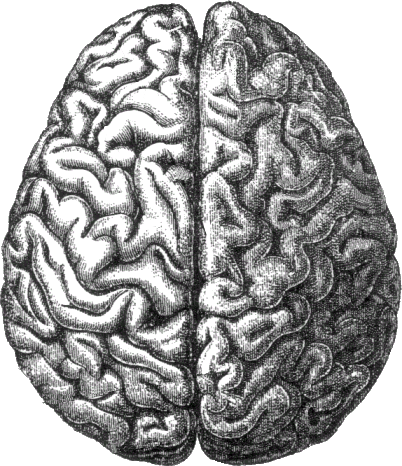7 Sins of Memory
The psychologist Daniel Schacter created descriptions of the memory foibles in 1999. He called these individual foibles "the Seven Sins of Memory". He broke down the sins into three categories: The sins of distortion, the sins of forgetting and the sin of intrusion. This hub will briefly describe Daniel Schacter's "Seven Sins of Memory".


Sins of Distortion
Bias:Biases can often be reflected in our memories. You can remember things based off of you beliefs, whether or not they really happened in the way that you remembered them. For example; you could have become a womans rights advocate just a year ago. Though you recently discovered the importance of womans rights, because you believe so strongly in them, your mind may remember you understanding this importance two or three years ago even though you discovered it only a year ago.
Suggestibility: The brain has no true way of filtering out what memories are truly factual. Traumatic experiences can allow the mind to create memories to follow the experience. These factors leave the brain vulnerable to suggestion. For example; If you were a child that suffered from child abuse and someone asked you "how hard were you hit?" you might reply that the action was less violent than if you were to be asked "how hard were you beaten?". By simpily switching the words you can make suggestions to the mind. The word "hit" implies that less damage was done than the word "beaten". Depending on what words are used, memories will follow the intensity of the phrasing.
Misattribution: Accurately remembering parts of an event but misremembering their context is known as misattribution. For example; if you remember the content of the phone conversation that you had with your sister, but you thought that you had the conversation itself with your mother, your memory has suffered from misattribution.


Sins of Forgetting
Transience: Most of our memories will fade over time, very few will remain permanent. This sin is very easy to understand; over time we lose the space that we had memories stored in, resulting in memory loss or forgetting.
Absentmindedness: This occurs when we don't pay attention to what we are doing. When you have a lack of attention, the brain fails to recored detailed information into your memory, causing you to forget.
Blocking: Do you ever struggle while remembering the name of a song? It's right on the tip of your tongue, but for some reason you just can't seem to access it. This is the result of mental blocking. Essentially, a mental block is a failure to retrieve information from a memory, such as the name of a song.

the Sin of Intrusion
Persistence: The sin of persistence can come from both true and false memories. Most of the memories come from traumatic, disturbing, or painful experiences. Persistent memories are memories that you can't keep from repeating in your mind, whether or not they truly occurred. A good example of mental persistence would be a soldier with post traumatic stress disorder. The images of war, death and suffering can embed themselves in the mind of the soldier, creating extreme discomfort and hostile feelings.








